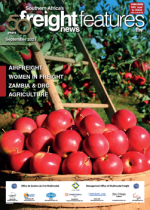The agricultural sector is currently grappling with various challenges that demand urgent attention. Persistent load-shedding, escalating protectionism in critical export markets, the upward trajectory of interest rates, and the deepening web of geopolitical tensions are all contributing to the adversity faced by farmers. Simultaneously, the cumulative impact of inadequate municipal service delivery and the underperformance of vital network industries like water, rail, and ports has exacerbated the predicament. Rural road degradation compounds the threats looming over the sector's sustainability.This was the feedback the Agricultural Business Chamber received during a recent interaction with members nationwide. "We spent most of July on the road, engaging with members and sector role-players in various regions of the country," said chief economist Wandile Sihlobo. "The feedback about the near-term outlook was reasonably positive in all our engagements, with many attributing their optimism to the favourable 2022/23 summer crop and 2023/24 winter crop seasons. The feedback from the horticulture and wine industries also remained encouraging as various stakeholders forecast growth and expansion prospects in the coming years. The outlook could have been more optimistic when we engaged the livestock and poultry industries that struggled with higher feed costs and persistent animal disease outbreaks."He said there was agreement across the sector that while many of the challenges faced were not necessarily new, the extent of weakness this year had reached worrying levels in some. "There was also consensus that not all the issues are within the government's control, but many are, and in such cases, the government should urgently assist," he said.One such case was that of rural roads. While the summer rainfall has supported agricultural production, it has also exacerbated the damage to neglected rural roads. "This is not a challenge faced only by large commercial farmers that serve a broader clientele but all farmers," said Sihlobo. "The emerging or new-entrant black farmers with limited financial resources face this challenge more acutely. The roads across the rural towns of the Eastern Cape, Free State, North West, Limpopo and KwaZulu-Natal, to name a few provinces, are poorly maintained and sometimes u nu sable."Compounding this challenge, he said, was the reality that South Africa transported over two-thirds of its agricultural produce by roads, as rail transport continued to face significant challenges. "This means the higher agricultural output without functional roads does not yield full financial benefit to farmers and agribusinesses, as some have to fund private construction at their cost to maintain some roads. This happens while the municipalities often have the allocated financial budget to cover their infrastructure needs but mismanage the funds, as so often reported by the Auditor General."Sihlobo said it was imperative for the agricultural sector that the road network be maintained. Earlier this year, the national road agency Sanral reported it had hit a "fiscal cliff " as it could no longer expand or even address the growing maintenance backlog.Sanral manages just under 23 500 kilometres of roads, while the provinces are responsible for 271 500kms. Metros are responsible for 66 150kms, and municipalities cover 256 900kms. The government has earmarked 15 000km of roads for transfer to Sanral's portfolio from provinces and local governments needing help to keep up with maintenance.But, with Sanral now under pressure due to the insufficient funds it requires per kilometre to maintain the Overall Condition Index (OCI) of the network to an acceptable level, it remains to be determined what will be done to address the ever-increasing degenerating road network.

